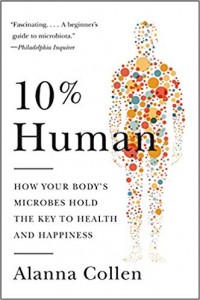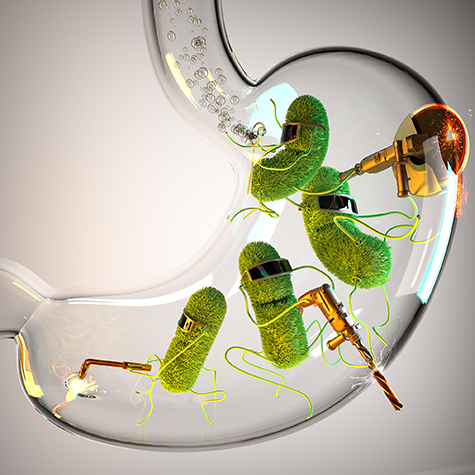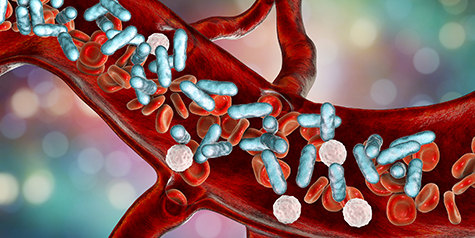Are We Only 10% Human? Microbes Are Key to Health

Obesity, autism, mental health problems, IBS, allergies, auto-immunity, cancer — Does the answer to the modern epidemic of ‘Western’ diseases lie in our gut?
According to author and biologist Alanna Collen, you are only 10% human. For every one of your cells, there are nine impostors hitching a ride. You are not just flesh and bone, but also bacteria and fungi. And you are more ‘them’ than you are ‘you.’
Your gut alone hosts 100 trillion of them and until recently we thought that our microbes didn’t matter. This is all set to change as the latest scientific research tells a very different story, one where microbes run our bodies and being healthy is impossible without them.
 In her ground-breaking book, 10% Human: How Your Body’s Microbes Hold The Key To Health And Happiness, Collen reveals how our personal colony of microbes influence our weight, immune system, mental health and even our choice of partner. This is a new way of understanding modern diseases – obesity, autism, mental health problems, gut disorders, allergies, auto-immunity and even cancer – as she argues they have their root in our failure to cherish our most fundamental and enduring relationship: that with our microbes.
In her ground-breaking book, 10% Human: How Your Body’s Microbes Hold The Key To Health And Happiness, Collen reveals how our personal colony of microbes influence our weight, immune system, mental health and even our choice of partner. This is a new way of understanding modern diseases – obesity, autism, mental health problems, gut disorders, allergies, auto-immunity and even cancer – as she argues they have their root in our failure to cherish our most fundamental and enduring relationship: that with our microbes.
Her research led her to believe that for human beings to thrive, we have to embrace, not stomp out, the thousands of species of bacteria and fungi in our bodies. If that flora is somehow disrupted, illness will follow.
She also believes that diseases like autism and mental illnesses are the indirect results of modern humanity’s obsession with cleanliness and of eradicating every microbe they come across.
She identifies three main factors that have likely been decimating the human microbiota over successive generations:
- The overuse of antibiotics — Taking antibiotics too often or for the wrong reasons can change bacteria so much that antibiotics don’t work against them. This is called bacterial resistance or antibiotic resistance. Some bacteria are now resistant to even the most powerful antibiotics available.
- A lack of dietary fiber — Is your diet short on fruits, vegetables, and whole grains? If so, you may not be getting all the fiber you need — raising your risks for weight gain, heart disease, constipation, blood sugar fluctuation and cancer.
- A failure to properly seed and nurture the infant microbiota — When the gut bacteria are deprived of the fermentable fibers that they feed on, they switch their food source to the mucus lining of your gut. Sound important? That’s because it is — the mucus lining keeps the gut wall intact and protected from infection. When this lining wears down, a host of health problems can happen, including obesity, depression and Type 2 diabetes.
The final section of the book deals with ways to restore the microbiota – namely, probiotics, prebiotics, and fecal microbiota transplantation. Probiotics, she says, can help treat conditions like hay fever and digestive symptoms, but their real power may be in the difficult-to-study realm of disease prevention. She acknowledges that doctors and scientists are only beginning to learn how to optimize their use in human health.
As the scientific insights continue at a slow burn, we will know more and more about how to prevent and treat diseases related to the microbiota. Says Collen, “Our other 90 per cent are showing us the way to live.”


